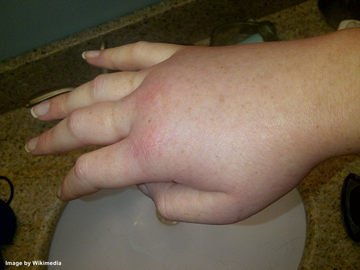If you have had a hysterectomy, you’re thinking that it is supposed to make you feel better. So, how long does fatigue last after hysterectomy? Fatigue after hysterectomy can last for up to 10 months.

In this article, we will be talking about how to deal with fatigue after hysterectomy and how to recover faster.
What is hysterectomy?
A hysterectomy is an operation for the removal of a woman’s uterus. The reasons why women might have hysterectomy vary. It is usually done to reduce the chances of uterine fibroids in women. Other diseases that warrant a hysterectomy include uterine prolapse, cancer of the uterus, Endometriosis, and chronic pelvic pain.
Types of hysterectomy:
Abdominal hysterectomy
An abdominal hysterectomy is the removal of the uterus through an incision in the lower abdomen of the woman. A partial hysterectomy removes the uterus while a total hysterectomy removes both the uterus and cervix.
Internal Female Organ Removal Procedure
This hysterectomy involves the removal of the uterus through the private parts. In this hysterectomy, the uterus is detached from the ovaries, fallopian tube and other connective tissues before it is removed through the reproductive system.
Laparoscopic supracervical hysterectomy
Laparoscopic supracervical hysterectomy is a surgical process where the uterus of a woman is removed but not the cervix. The technique used in this hysterectomy involves several small incisions on the abdomen of the woman.
What are the complications of a hysterectomy?
Like other surgical procedures, there are complications that can occur after a hysterectomy. Some of them include
General anaesthetic
This is a rear complication although it does happen sometimes. After receiving anesthetics, it is possible to experience nerve damage and allergic reaction.
Bleeding
There is a chance of bleeding after having a hysterectomy, although it is only a small risk. If you experience heavy bleeding after a hysterectomy, a blood transfusion will be required.
Blood clots
There is a risk of blood clot after a hysterectomy. This is due to the immobility after the operation. After periods of moving, it begins to fade.
Other complications that can occur from the hysterectomy include infections, reproductive system problem, ovary failure, and ureter damage.
What causes fatigue after hysterectomy?
Fatigue is a common side effect of hysterectomy. On average, fatigue lasts for up to 10 weeks after the surgical operation. Chronic fatigue after hysterectomy is mostly due to a sharp drop in estrogen level. Apart from estrogen other hormonal fluctuations also contribute to fatigue after the surgical operation.
How to fight fatigue after a hysterectomy?
Get enough rest
It is important to get enough rest after the surgery because your body needs it. Ensure that you sleep for up to 10 hours each day.
Eat well
Good meals help with the healing process and restore energy levels in your body after the hysterectomy
Balance hormones
You can consider seeking help with your doctor to arrange a hormone replacement therapy.
Conclusion:
Hysterectomy recovery is never easy. You need to allow your body sometime to recover. You can consult with your doctor for quick recovery.
References:
- https://www.hormonesmatter.com/hysterectomy-experiences-chronic-fatigue/
- https://www.lifeafterhysterectomy.com/fatigue-after-hysterectomy/
- https://www.bodylogicmd.com/blog/why-am-i-tired-after-my-hysterectomy-there-is-hope-for-recovering-your-energy/





